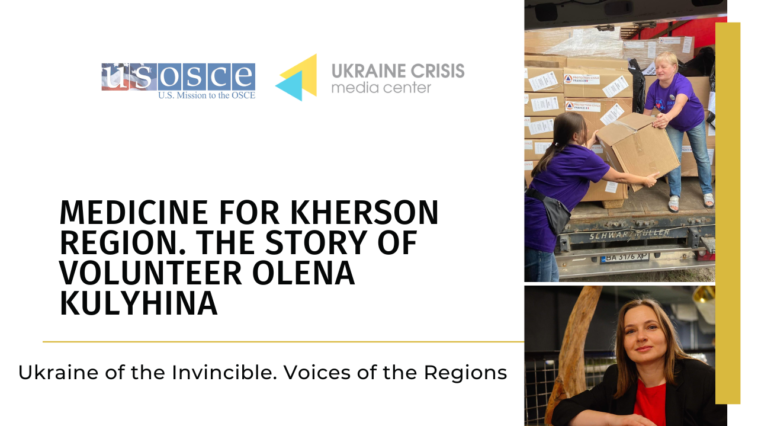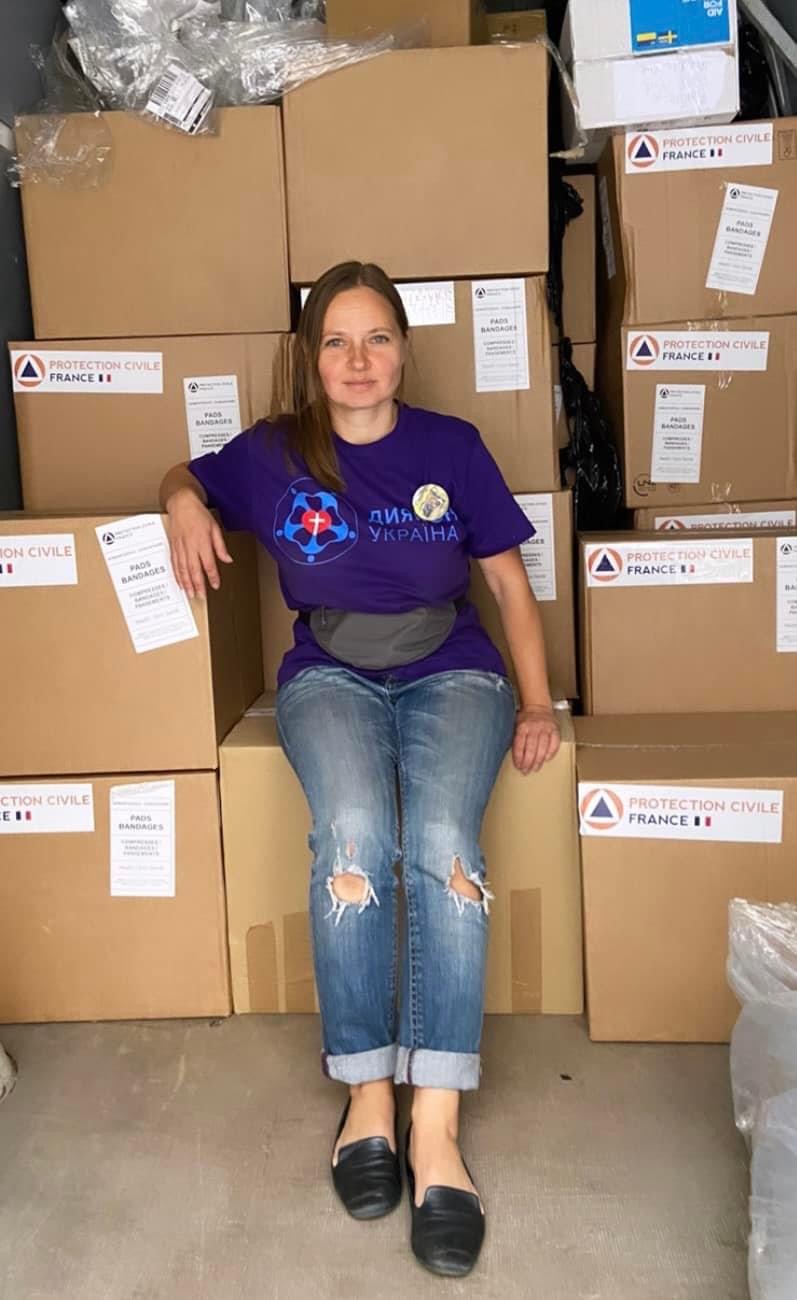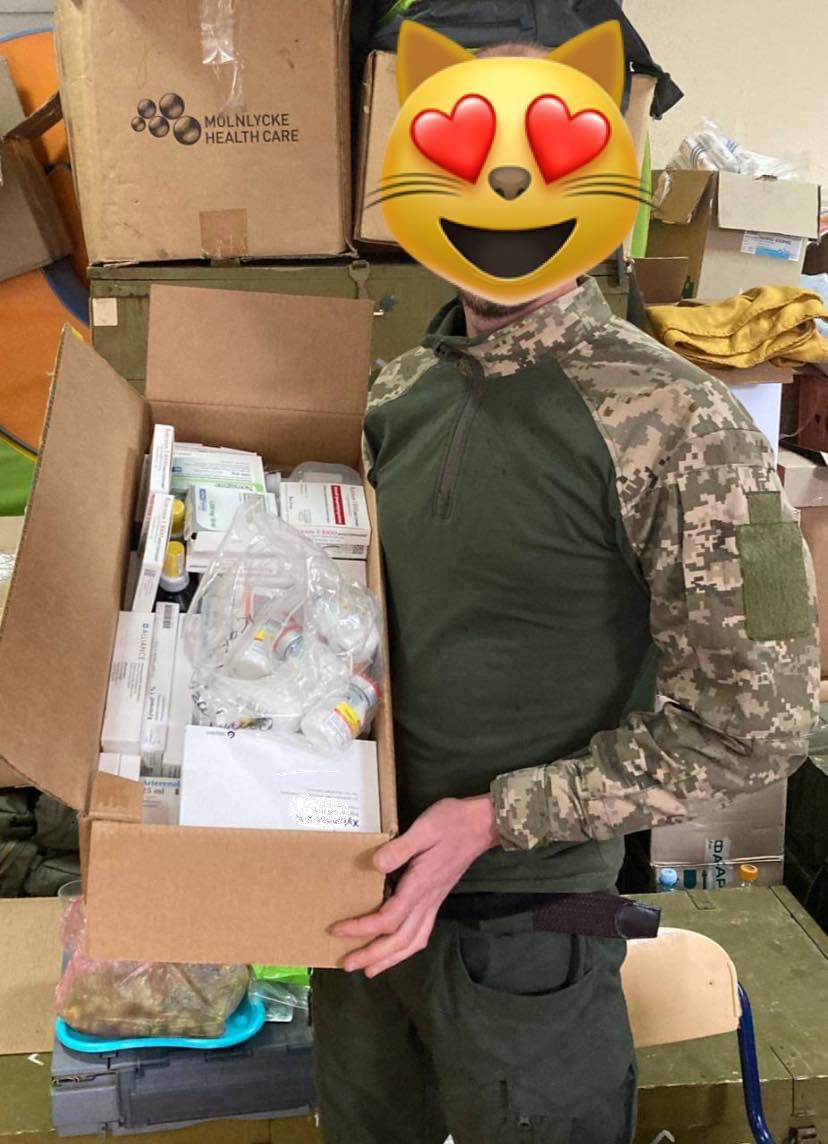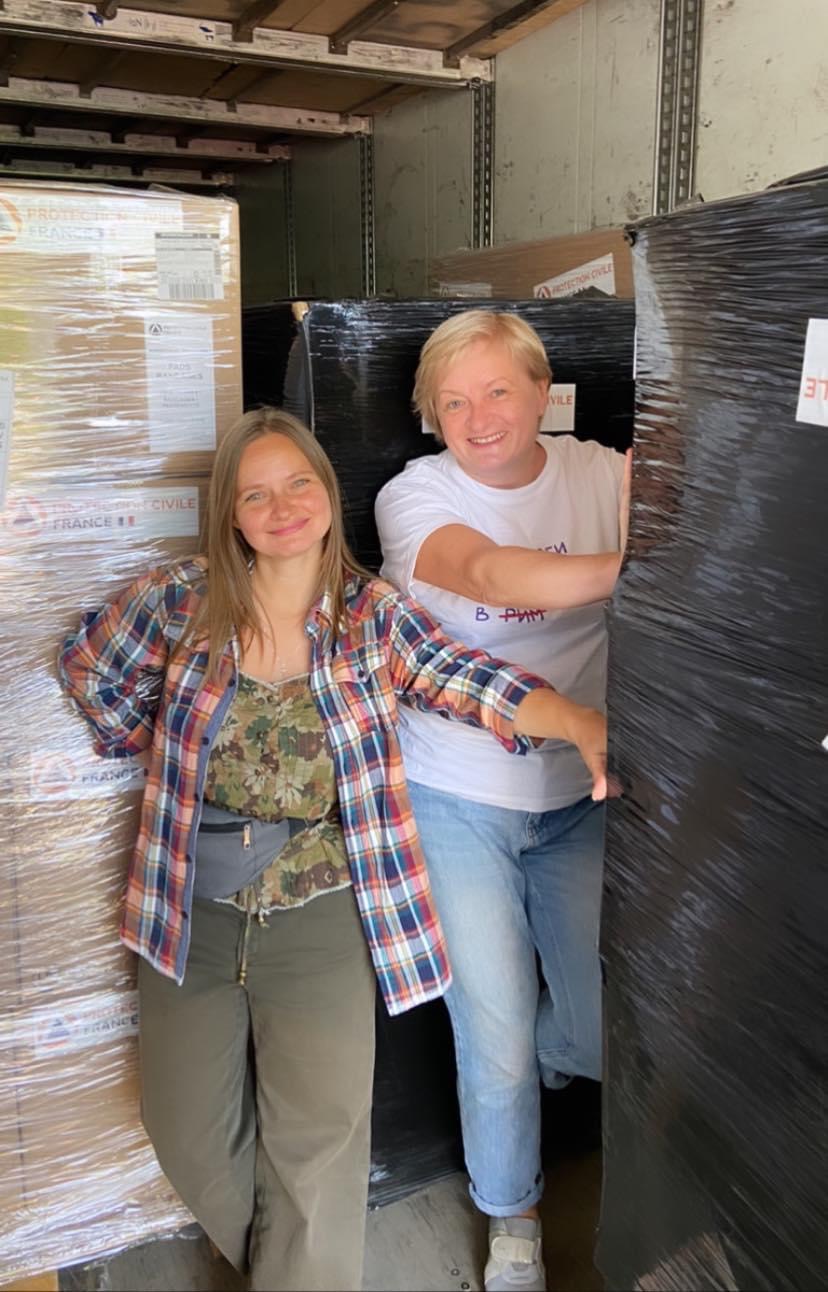There are almost 700 settlements in the Kherson region. The lion’s share of them has been occupied. 45% of the population managed to leave Kherson. All those who remained faced a humanitarian catastrophe in the spring. One of its manifestations was the lack of access to medicines. After the beginning of the invasion, the russian occupiers blocked the supply of all vital drugs. Later, they began to seize hospitals and lay off the staff. They also began to import drugs from russia and open quasi-pharmacies with awfully expensive, low-quality drugs.
Then volunteers came to people’s assistance. They began delivering necessary medications to the temporarily occupied area, supplying medicines to medical institutions. One of the volunteers is Olena Kulyhina from Lviv. She was born in Nova Kakhovka, Kherson region, and until recently she led the master’s program in media communications at the Ukrainian Catholic University. In August, she completely switched to volunteering, as she realized that this way she could help people more efficiently. A lot of her kith and kins are still in the Kherson region, so she knows the problems of the occupied south firsthand.
Olena, why did you decide to volunteer? Why is this important to you?
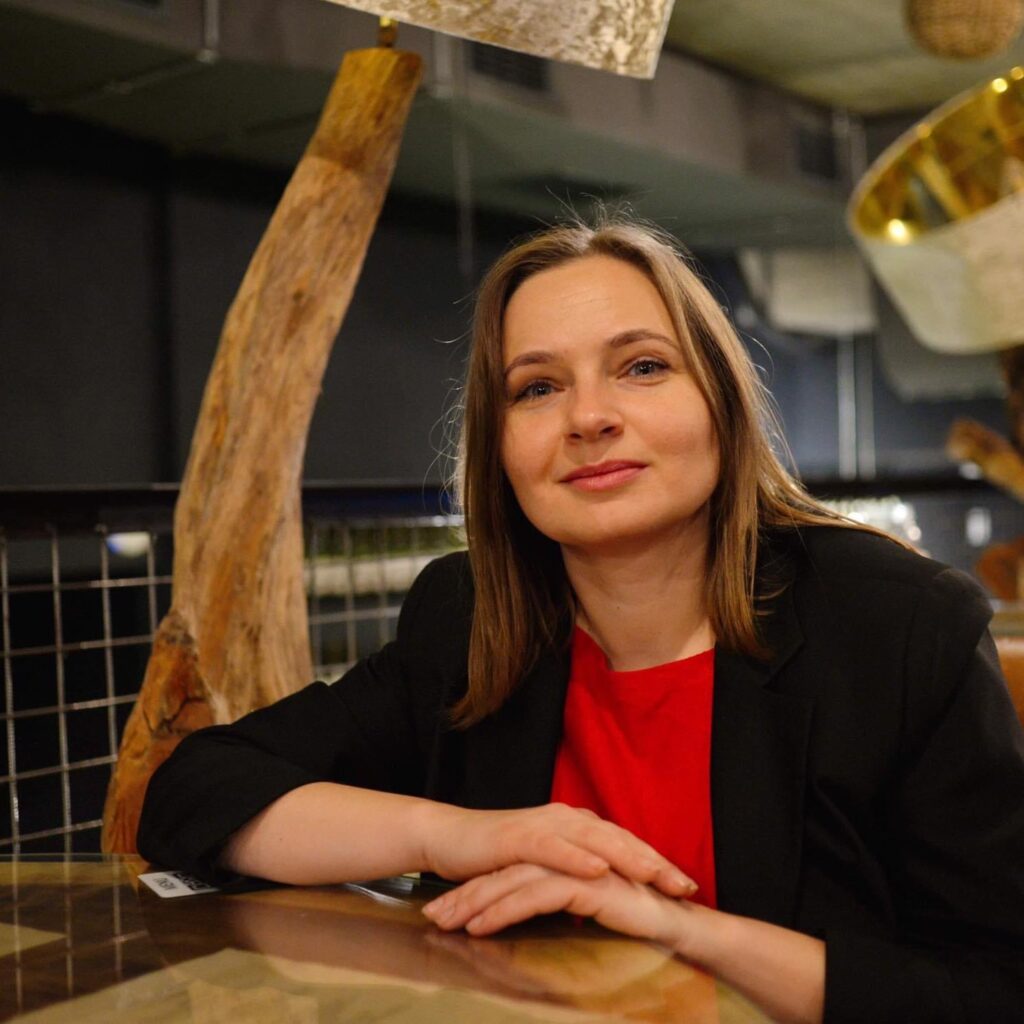
This is not my first volunteer experience after the war began. Back in 2016, I left Lviv for Zaporizhzhia for a year to participate in a humanitarian campaign “Pope for Ukraine”, which aimed to help Ukrainians who had suffered from russian aggression in the east of the country or had become internally displaced. I didn’t hesitate to leave my comfortable life and my job in the tourism industry. It was more important for me to visit Sloviansk, Maryinka, Krasnohorivka, and Severodonetsk rather than Rome or Paris. So that time, my own flashbacks worked and I didn’t have to think long about what to do: some things were already in my subconscious.
Of course, it’s a different experience now, and the scale of hostilities is quite different, but I’m no longer afraid. My friends sometimes ask me if I am scared to go to Kryvyi Rih, Zaporizhzhia or Bashtanka. I answer no. Because I was in all those cities in 2016, and both then and now I’m aware that Russian shelling can get us anywhere at any time. So I have no fear, I have experienced it before and calmly go where I have to go.
It is also important for me because I was born in the Kherson region. Although I’ve been living and working in Lviv for 14 years, my family and a large community of friends from my childhood remained there, under occupation. That’s why we first started helping people of Nova Kakhovka with medications, and then people from other parts of the Kherson region started contacting us.
The first orders were for 30-50 people, and the latest shipments included 200-300 private orders plus requests from hospitals, communities, and family doctors. There are also a lot more people ready to help. Medicines are arriving from Kyiv, other Ukrainian cities, and from abroad. It happened by itself for me, I just started volunteering and couldn’t stop. In any case, life in Lviv is relatively peaceful. Yes, with sirens, with alarms. But we live in the Ukrainian government-controlled area; we go to coffee shops, meet with friends, while on that side, there are people for whom medications are often a matter of physical survival. A lot of people cannot go to the controlled area because of serious illnesses, for example, schizophrenia or epilepsy, and because of sick relatives or elderly parents they care for. For me, not helping them is like not helping my family.
Who exactly do you help with medicines?
It all started with medicines. I called our initiative “Medicines for the Kherson region”, and everyone began using that name. Initially those were small initiatives, small transfers to individuals. And then we had some medicines, bandages, and saline solutions left, and we started giving them to military medical acquaintances who work in the Mykolayiv and Kherson regions. Later, sometime in April, we learned about a whole bunch of their needs, what exactly they needed. I thought then: my relatives remain under occupation and are waiting for our army to liberate them, but the Ukrainian army also needs help with medicines. Thus, we began focusing not only on sending medicines to the occupied areas, but also on helping combat medics and medical companies on the southern front – from Mykolayiv to Zaporizhzhia and Vasylivka.
We established contact with medics very quickly. Now we’re helping about 15 military doctors from various units along the entire southern front line and 2 medical companies, which we provide rather systematically. And not only with medications and bandages, but we’ve also been able to deliver one evacuation vehicle and three ambulances to them.
Why do Ukrainian combat medics need help with medications?
The fact is that volunteers have a very high ability and can find the right amount of medicines faster. Sometimes you have to wait for something to go through the ministry or the headquarters of one or another agency. For example, doctors submit a request for medicines to the headquarters, which is 50-70 km away. This request must be signed, forwarded to charitable foundations or some government agency. The doctors will certainly get what they need, but it will take some time. Even if all links work properly, it can take up to a week. Charitable foundations regularly receive 10-20 requests, and they sometimes cannot process them promptly.
A few months ago, we ourselves had situations when we handed over to combat medics a rather large batch of medicines and bandages, which was supposed to be enough for 2-3 weeks. But then there were small counter-offensives, our soldiers managed to recapture a village or two, and a day later there were about a hundred wounded. All the supplies planned for several weeks were used up within two days. That’s why they turned to us and wrote requests to the headquarters to urgently provide them with saline solutions and other medications. Sometimes those requests came on Saturday at 10:00 p.m. and on Sunday, in Lviv, we managed to collect everything they needed and send it immediately.
Besides, not all foreign donors work with state agencies or the Ministry of Health of Ukraine. It is easier for someone to work directly with charitable foundations, because it significantly shortens the path to the right people, and there is a simpler reporting system. Aid abroad is often collected by initiative groups of Ukrainians in Italy, Germany, and Poland. Thanks to the Ukrainians in Germany, we received three ambulance vehicles and officially transferred them to the Armed Forces of Ukraine. Personal contacts make this procedure much easier.
Great help is provided by the Protestant and Catholic communities of Europe and the USA. This way is also very effective, but it largely rests on personal contacts.
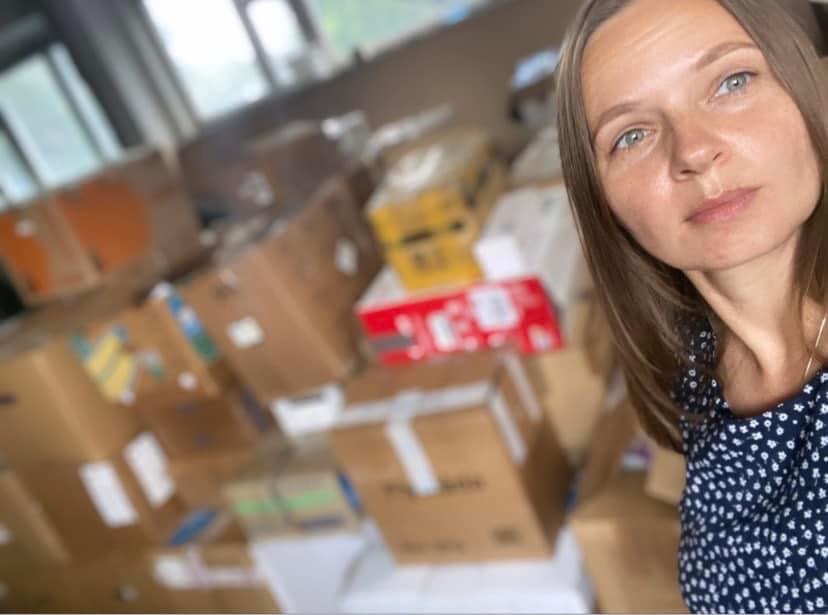
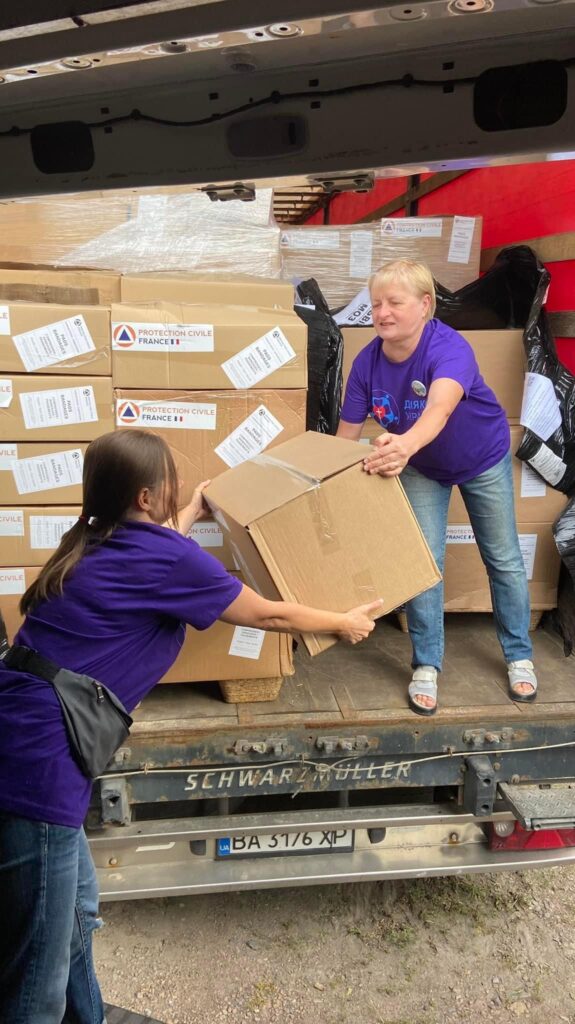
Who is helping Ukraine now?
Many countries are helping Ukraine, for example, Germany, Poland. There are good friends from Spain who provide support to hospitals. We help not only civilians and military personnel who are on the front lines, but also the hospitals where they are treated. Military hospitals in Ukraine are well equipped, but a large number of ordinary city hospitals have actually turned into military hospitals today. So they need help, because state support does not reach them so quickly due to the peculiarities of logistics and bureaucratic procedures. Therefore, humanitarian supplies of equipment, such as lung ventilators are indispensable for them. Austria, Canada, the USA, Great Britain and many other countries help us.
There is a large volunteer hub in Lviv. In fact, every third of my acquaintances is involved in various volunteer initiatives and foundations. Someone is rallying the elderly to weave camouflage nets – this is also a very necessary thing. And someone goes to churches and asks to collect medicines for the residents of the Kherson region. The desire to do something to help people from the occupied south and our military amazes me. Not all of these volunteers have ever been to the Kherson region. Many have not been there, but they know about our region and understand that it is currently under occupation and the residents there do not have the opportunity to buy the necessary medicines.
Has the situation with access to medicines for residents of the occupied Kherson region changed now?
Yes, it has. Unfortunately, the occupiers have imposed a ban on the transportation of charity goods. Our goods are in Zaporizhzhia and we are waiting for an opportunity to transport them, but the ruscists do not allow any shipments to enter the Kherson region. We are waiting and hoping that the situation will change.
Meanwhile, the situation with hygiene products is very difficult in the Kherson region. There is a huge need for pads, diapers for adults and other things that cannot be bought there in pharmacies. And the pharmacies opened by the russian occupiers, in fact, only imitate their activities. My relatives tell me that the russian analogues of the drugs that are sold in the occupied Kherson region yield to Ukrainian drugs in their quality, and are more expensive. It is very difficult there for people with chronic, serious diseases, who are in specialized institutions and do not have the opportunity to leave for the Ukrainian government-controlled territory.
All our previous shipments of medicines reached the destination. Sometimes we sent very expensive drugs to the Kherson region; we tried to hide them somewhere among “simple” drugs. We hoped that the occupiers at the russian checkpoints would not be able to distinguish them and “google” their value. So far we have been lucky. Sometimes they stole coffee or other simple things. But almost all our medicines reached people. I hope that the latest shipment will also to reach the destination.
Do you help only Nova Kakhovka or other areas of the Kherson region?
We have two volunteer centers in Nova Kakhovka and Kherson. Residents of other areas of the Kherson region can choose which of these two cities is more convenient for them to pick up their medicine. We work through volunteers we trust and at the same time we care about their safety so they don’t get hurt just for trying to help other people.
Do you have to contact representatives of local authorities, state structures?
Yes, we do. In order for the medicines to arrive in the Kherson region, it is necessary to form a convoy of humanitarian goods and prepare all accompanying documents. All this is done by volunteers. And they do not receive a kopeck for this work. We have never taken money for sending certain medicines.
We compile the lists and appoint those responsible for forming a shipment and for receiving it in the temporarily occupied territory. We have all the necessary documents for this. So far, so good. We had no obstacles from any state bodies.
Residents of the Kherson region say that there are few doctors left there now, and they have problems not only with medicines, but also with who can provide them with the necessary medical care. What do you know about this?
At first, we cooperated more with medical institutions and family doctors. And through them, medicines were given to those who needed them. Some doctors were forced to resign, but some continue to visit patients at home.
We tried to send the latest shipments to the Kherson region through our acquaintances. Thanks to my work at UCU, I had many doctor friends all over Ukraine who helped us, and we sent medicines to different parts of the Kherson region.
However, the main problems are still ahead. Our counteroffensive in the south continues, and we understand that the Ukrainian army is actually walking on scorched earth. Many medical facilities there are broken, and they will have to be built from scratch. So there will still be enough work for volunteers. But I’m interested in it, because I understand that these are the things that help save someone’s life and improve the quality of life of those who remain in the occupied territory and those who help to liberate it from the invaders. And my volunteer contribution is the least I can do during the war.
Oleh Baturin
Photos courtesy of Olena Kulyhina
14.09.2022

